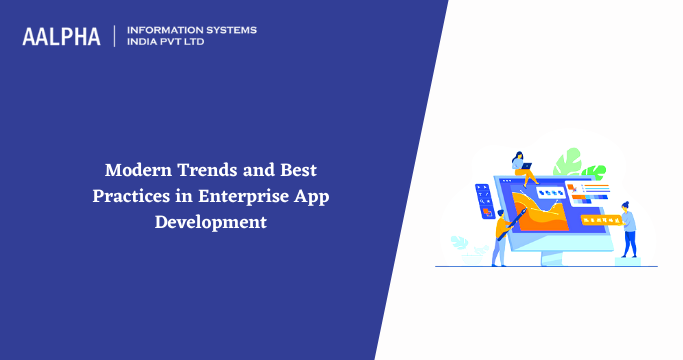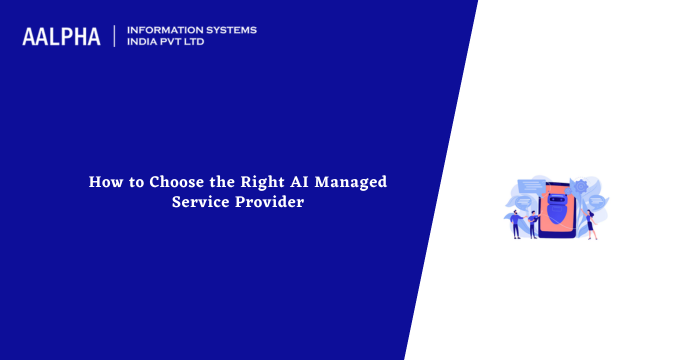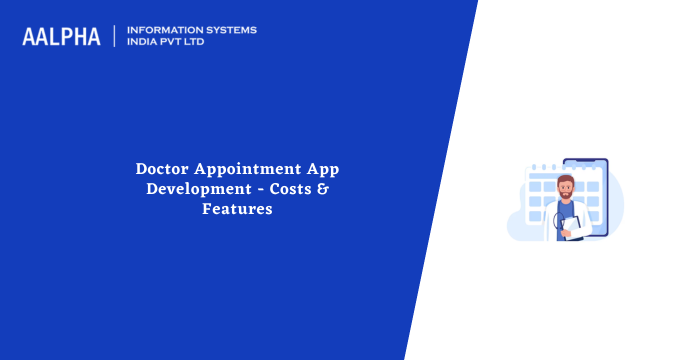Business administration in the modern-day necessitates a high degree of process automation and a customized administrative strategy. All mentioned tasks can be easily accomplished using customized enterprise applications. With their assistance, businesses may optimize their supply chains, increase customer service, improve staff management, analyze vast quantities of data, and do various other activities.
Numerous companies have already developed their enterprise-level digital solutions based on current trends and best practices. Among them is the development of business applications for mobile devices.
How Is Enterprise Mobile Application Development Performed?
“Enterprise mobile application development” is a very self-explanatory phrase. This activity involves the creation of enterprise-level mobile applications. What, therefore, are “enterprise-level applications”?
Enterprise-level applications are those created for the administration and optimization of business operations inside an organization. They execute a variety of activities geared at fulfilling the functional business requirements of a particular organization. For instance, they can:
- Automate certain activities inside manufacturing processes.
- Give data access depending on each employee’s position in the organization.
- Enhance employee communication and data sharing across departments.
Trends and Best Practices for Enterprise Applications
Despite this, the various push and pull forces that many companies are currently experiencing in terms of mobile app development methodologies, which may include the use of RMAD tools such as MbaaS or the use of a mobile cloud back-end system, can be effectively resolved if companies adopt best practices to overcome app development practices.
-
Using the RMAD method
Recognizing the urgency with which companies must acquire a competitive edge, top executives have been rushing to get the applications out the door. This strategy gave birth to the phrase “rapid mobile application development” (RMAD).
RMAD leverages code-free programming tools to accelerate the process of developing applications for mobile platforms to meet the demands of today’s corporate environments. RMAD enables companies to develop adequate internal applications to solve business problems rapidly.
With RMAD software, which is often web-based and object-oriented, it is feasible to build higher-quality products quicker by utilizing more beneficial methods such as early prototyping, reusing software components, and requiring less formality in team communication.
-
The development of applications must be prioritized.
There is a dearth of “value-driven prioritization” incorporate application development. This approach has already resulted in the wasteful use of information technology resources. Because applications should not be developed on a first-come, first-served basis. Moreover, they should be prioritized to meet business stakeholders’ requirements.
-
Adopting a bimodal approach to information technology
Today, the business has acquired a tremendous appetite for applications, which cannot be satiated if one looks closely. Along with RMAD, a new trend dubbed Bimodal IT is gaining traction “The discipline of managing two different, cohesive methods for delivering information technology, one focused on stability and the other on agility,” is what bimodal IT refers to.
Mode 1 is conventional and sequential, with an emphasis on safety and precision. Mode 2 is exploratory and nonlinear, placing a premium on agility and speed.” This is anticipated to close the existing five-to-one imbalance between demand and capacity.
-
Create intelligent and lightweight applications
Nowadays, businesses are on the lookout for more modern and scalable applications that may assist them in resolving their business challenges. Thus, using methods for developing intelligent and lightweight applications may assist companies in grabbing the spotlight and emerging as champions in competitive industries. Utilizing apps as powerful marketing tools will undoubtedly become a compelling approach at that point.
-
Resolve an enterprise-wide issue
Ascertain that your app provides value to the user while also resolving an issue. Try to tackle an issue that no one else has solved.
-
Security and functionality are prioritized.
Ensure that you place a premium on business security and functionality while developing enterprise applications. This implies that you must live up to the highest standards set by business users for such applications.
-
Implementing a mixed-sourcing strategy.
It is conceivable that many businesses will be unable to maintain an entirely in-house development environment. However, it may be more cost-effective to outsource some components. For instance, in the case of mobile application development, cellular coverage testing and user experience design may be outsourced, while the remaining tasks could be performed in-house.
-
Cross-platform applications
Today’s emphasis isn’t on mobile or web platforms but on apps that work on any platform or device. Hybrid apps are the future, and developers should concentrate on them. Consumers now often switch devices, so companies need apps on desktops, laptops, smartphones, and tablets.
Given the global proliferation of smartphones, it seems that hybrid apps are the future of business apps. In the future, when demand for hybrid apps far outstrips supply, IT companies who develop hybrid applications will seem victorious.
Finally,
Enterprises need apps more than ever to operate efficiently and consistently. This opens the door for better business application development methods that adhere to rigorous industry standards. When the stakes are this high, it’s inevitable for evolutionary or even revolutionary tendencies to take precedence to provide the unique applications of the future.
Looking for enterprise application development services? feel free to contact us today & get a free quote.
Also check: Enterprise Application Integration




Share This Article:
Written by:
Muzammil K
Muzammil K is the Marketing Manager at Aalpha Information Systems, where he leads marketing efforts to drive business growth. With a passion for marketing strategy and a commitment to results, he's dedicated to helping the company succeed in the ever-changing digital landscape.
Muzammil K is the Marketing Manager at Aalpha Information Systems, where he leads marketing efforts to drive business growth. With a passion for marketing strategy and a commitment to results, he's dedicated to helping the company succeed in the ever-changing digital landscape.